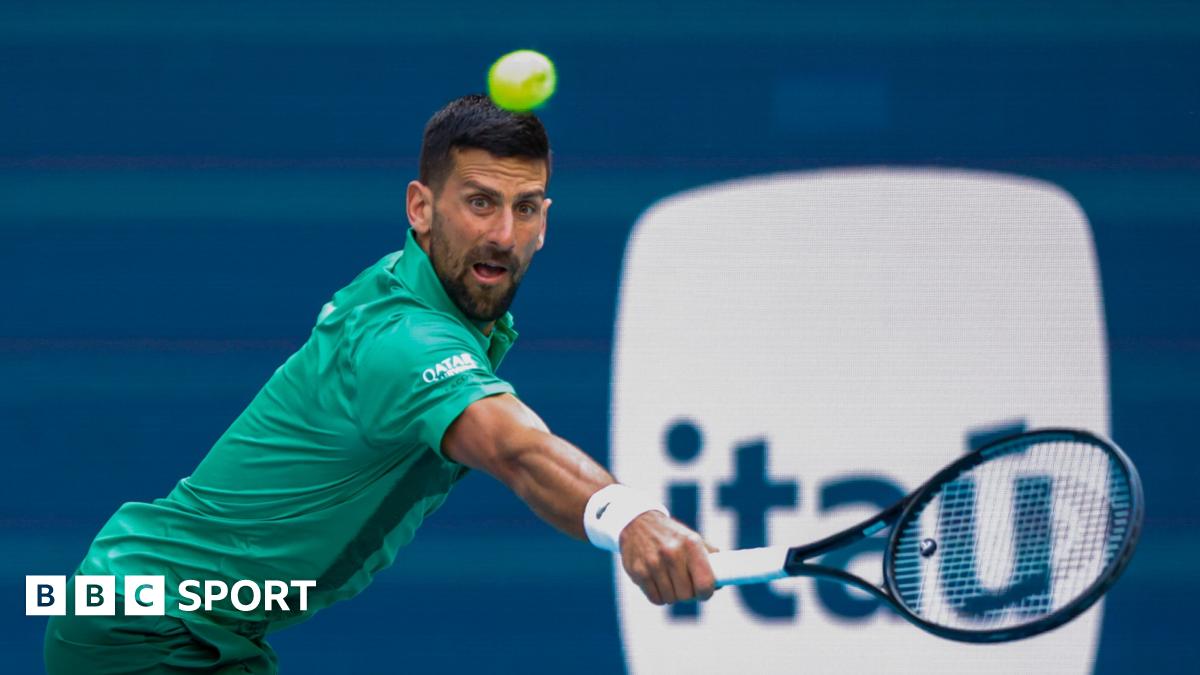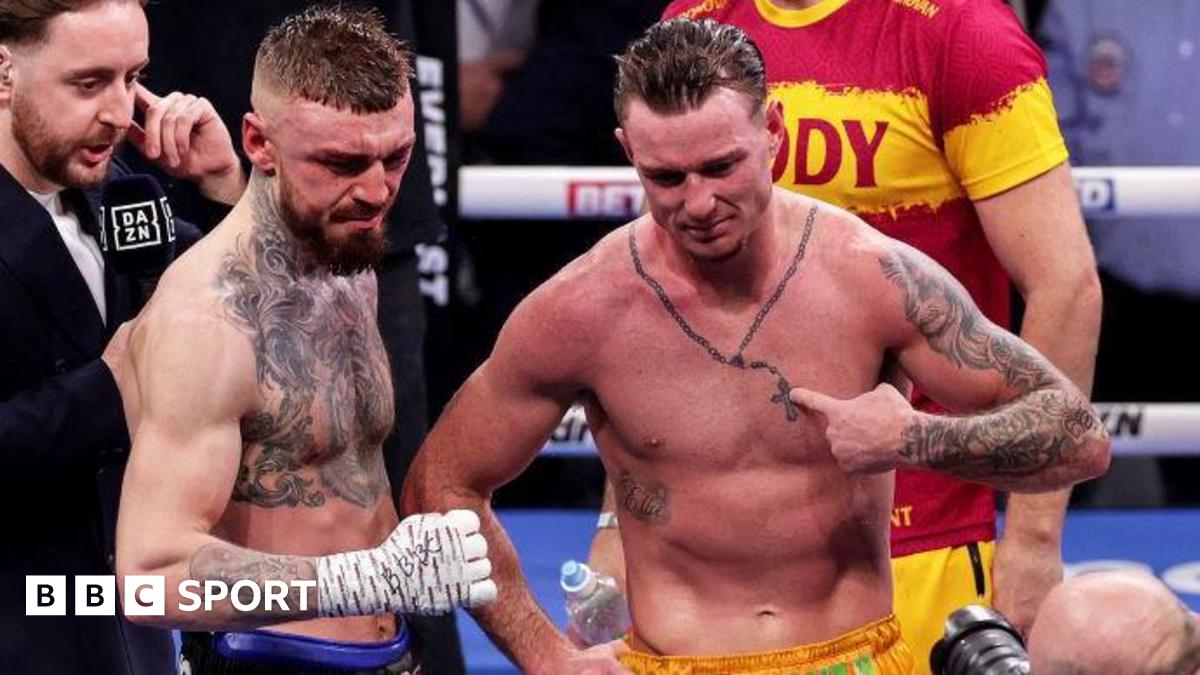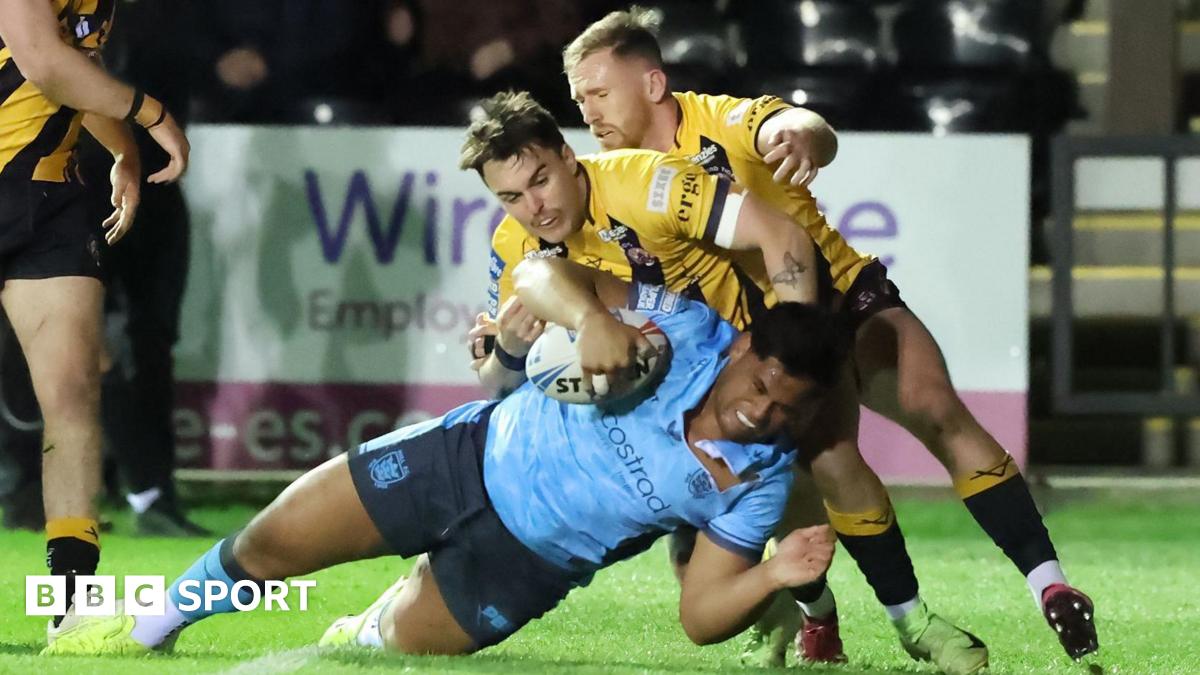ARTICLE AD BOX
Archie Atkinson was on the verge of becoming Paralympic champion, leading the C4 4,000m individual pursuit by five seconds in Paris last summer with one lap remaining.
But the Para-cyclist had given his all and was visibly tiring as he crashed to the floor in the velodrome with 250m to go to hand an unlikely gold medal to Slovak Jozef Methelka.
The 20-year-old Briton still finds it difficult to look at his Paralympic silver medal and admitted it lives under his bed.
"The weeks after were pretty rough. I kept dreaming about it," Atkinson told BBC Sport.
"With neurodiversity, you become obsessed with it, so my obsession was my crash in Paris, which isn't very nice. You keep dwelling on it.
"I hid my medal away, I was ashamed of it, which is quite upsetting."
Atkinson was identified as autistic and with attention deficit hyperactivity disorder (ADHD) aged 10, and six years later it was confirmed he had cerebral palsy.
"I'm more than just a label," he insisted. "I am my own person and even with them you can achieve anything you want."
He describes his experience of being neurodivergent as both a blessing and a curse.
"It's a blessing because you can get super focus and special interests, so one special interest for a few months could be aerodynamics or numbers or sprinting," Atkinson explained.
"You obsessively focus on that specific thing until you have perfected it."
Atkinson found school challenging and said he was bullied for playing Para-football, clips of which surfaced on social media at the time.
"You do get those certain few who take it to the extreme," he said.
"They will have something against you completely because you're autistic or different and, for whatever reason, they don't like that."
PE lessons were also particularly problematic.
He was not picked for teams initially because it was perceived that his autism would stop him from being any good.
Atkinson said: "After a few years they worked out 'oh, he has some talent' so then they would pick you on their team. It's not very nice."
Despite the difficulties, Atkinson stuck to his love of sport, eventually finding Para-cycling.
"I think a lot of neurodiverse kids struggle with sports," he said.
"I think if schools were to focus on supporting those kids with additional needs to help them do sport, it would massively improve them."
Atkinson is clear that being neurodivergent can help in making it to elite sport, specifying a "special ability to super focus or hyper fixate".
And it was also physical activity that taught him how to manage difficult times.
"Sport was there as my sort of freedom, my outlet," he said.
"If I had a bad day at school, I'd go play football or run around in the garden or ride my bike and that made me happy and feel free."
Atkinson's first taste of a velodrome came when he was just 10, under the guidance of Sir Chris Hoy.
It arose when the six-time Olympic champion launched children's bikes in partnership with a retailer where Atkinson's father worked.
"It was quite daunting, [being] very small, and you see the massive banking [in the velodrome]. It was quite scary," he admitted.
"And then getting told by him, 'oh there's no brakes!', you're terrified of going over the handlebars."
After getting over the initial fear he felt, "this is quite good, it's quite fun' and then your world opens up".
Atkinson continued to cycle for pleasure but a chance encounter with double Paralympic gold medallist Ben Watson while out on a ride with his father in 2021 changed the course of his life.
He realised he could be eligible for Para-cycling, and after undergoing power tests was accepted onto the British Cycling Foundation Pathway.
A year later and he was promoted to the world class performance programme.
Within a short space of time Atkinson has won a Paralympic silver as well as world champion medals on the track and road and he is eyeing more.
This summer's Para-cycling Road World Championship will be in Belgium and he is targeting the time trials.
And he added "every title in the track events" would give him the confidence to "smash it" at the Los Angeles Paralympics in 2028.
"Heartbreak in Paris to success in LA. I think it'll make a nice story," he added.

 6 days ago
4
6 days ago
4








 English (US) ·
English (US) ·